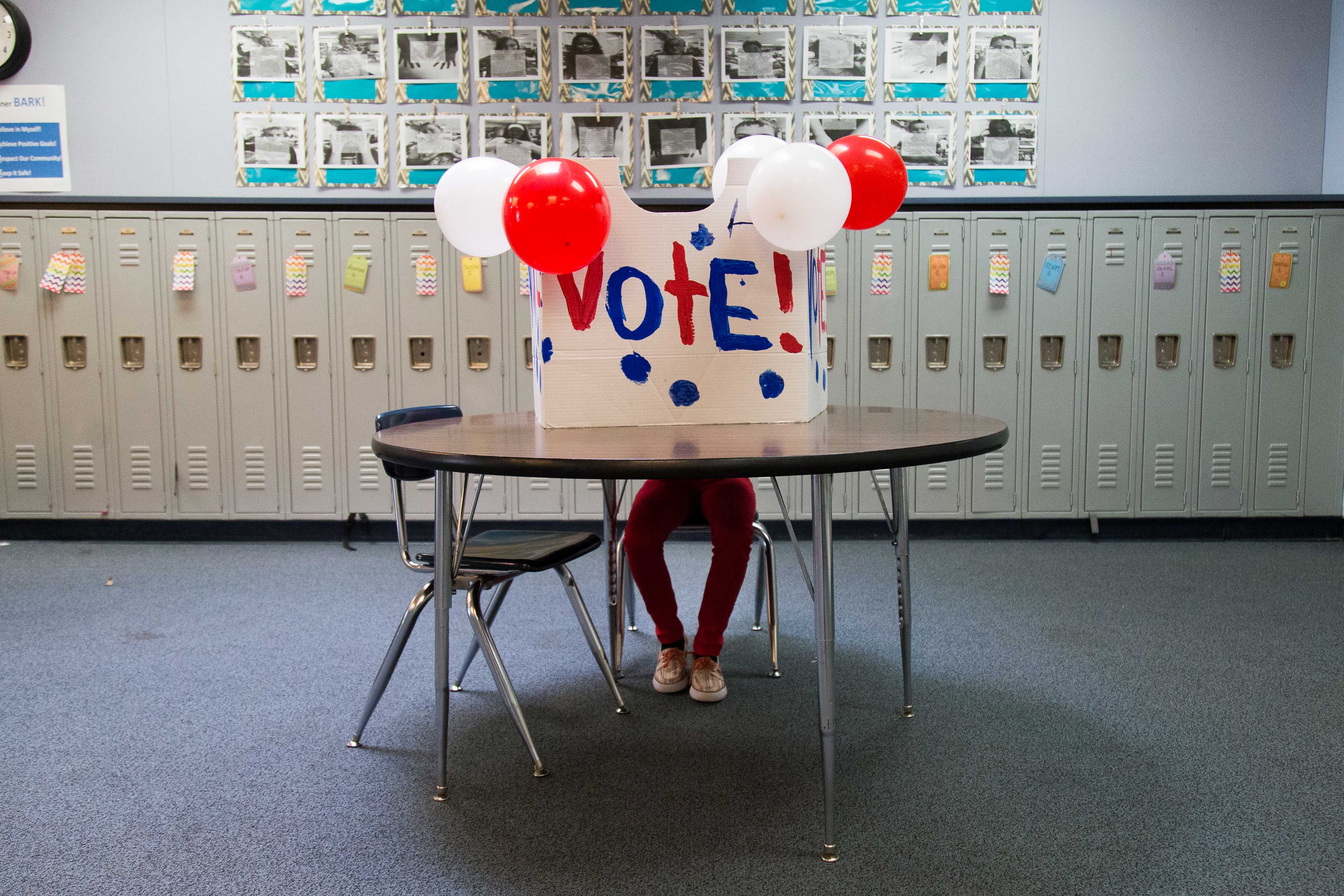|
College Republicans
College Republicans are college and university students who support the Republican Party of the United States. Many members belong to the organization College Republican National Committee (CRNC), College Republicans United (CRU), or various independent statewide organizations and campus clubs. The College Republicans are known as an active recruiting tool for the party and have produced many prominent Republican and conservative activists and introduced more party members to the Republican party than any other organization in the nation. Notable Organizations As of 2021, notable national College Republican organizations include: * College Republican National Committee (CRNC) * College Republicans United (CRU) As of 2021, notable independent state College Republican organizations include: *California College Republicans *New York Federation of College Republicans *Oklahoma College Republicans *Texas Federation of College Republicans *Mississippi Federation of College Republ ... [...More Info...] [...Related Items...] OR: [Wikipedia] [Google] [Baidu] |
California College Republicans
The California College Republicans (CCR) is a California state organization for college and university students who support the Republican Party of the United States. Founded on August 29, 1963, the organization is the official chartered youth wing and a recruiting tool for the California Republican Party. It has produced many prominent republican and conservative activists, with notable alumni such as Kevin McCarthy, Ben Shapiro, and Kevin Kiley. CCR is a political action committee (PAC) that is not affiliated with and operates independently from the College Republican National Committee (CRNC). History Founding and Early History CCR began with 1,800 members on August 29, 1963 — founded by Randolph Siefkin, Harold Phillips, William Nielsen, William Dillon, and Pete Wilson (who went on to serve as a US Senator from 1983 to 1991 and Governor of California from 1991 to 1999). The 1963 mission statement of CCR read: ''The specific and primary purposes for which this corpo ... [...More Info...] [...Related Items...] OR: [Wikipedia] [Google] [Baidu] |
College
A college (Latin: ''collegium'') is an educational institution or a constituent part of one. A college may be a degree-awarding tertiary educational institution, a part of a collegiate or federal university, an institution offering vocational education, or a secondary school. In most of the world, a college may be a high school or secondary school, a college of further education, a training institution that awards trade qualifications, a higher-education provider that does not have university status (often without its own degree-awarding powers), or a constituent part of a university. In the United States, a college may offer undergraduate programs – either as an independent institution or as the undergraduate program of a university – or it may be a residential college of a university or a community college, referring to (primarily public) higher education institutions that aim to provide affordable and accessible education, usually limited to two-year as ... [...More Info...] [...Related Items...] OR: [Wikipedia] [Google] [Baidu] |
Chair (official)
The chairperson, also chairman, chairwoman or chair, is the presiding officer of an organized group such as a board, committee, or deliberative assembly. The person holding the office, who is typically elected or appointed by members of the group, presides over meetings of the group, and conducts the group's business in an orderly fashion. In some organizations, the chairperson is also known as ''president'' (or other title). In others, where a board appoints a president (or other title), the two terms are used for distinct positions. Also, the chairman term may be used in a neutral manner not directly implying the gender of the holder. Terminology Terms for the office and its holder include ''chair'', ''chairperson'', ''chairman'', ''chairwoman'', ''convenor'', ''facilitator'', '' moderator'', ''president'', and ''presiding officer''. The chairperson of a parliamentary chamber is often called the ''speaker''. ''Chair'' has been used to refer to a seat or office of authority ... [...More Info...] [...Related Items...] OR: [Wikipedia] [Google] [Baidu] |
Lobbying
In politics, lobbying, persuasion or interest representation is the act of lawfully attempting to influence the actions, policies, or decisions of government officials, most often legislators or members of regulatory agency, regulatory agencies. Lobbying, which usually involves direct, face-to-face contact, is done by many types of people, associations and organized groups, including individuals in the private sector, corporations, fellow legislators or government officials, or advocacy groups (interest groups). Lobbyists may be among a legislator's Electoral district, constituencies, meaning a Voting, voter or Voting bloc, bloc of voters within their electoral district; they may engage in lobbying as a business. Professional lobbyists are people whose business is trying to influence legislation, regulation, or other government decisions, actions, or policies on behalf of a group or individual who hires them. Individuals and nonprofit organizations can also lobby as an act of vo ... [...More Info...] [...Related Items...] OR: [Wikipedia] [Google] [Baidu] |
Advocacy
Advocacy is an Action (philosophy), activity by an individual or advocacy group, group that aims to influence decision making, decisions within political, economic, and social institutions. Advocacy includes activities and publications to influence public policy, laws and budgets by using facts, their relationships, the media, and messaging to educate government officials and the public. Advocacy can include many activities that a person or organization undertakes, including media campaigns, public speaking, commissioning and publishing research. Lobbying (often by lobby groups) is a form of advocacy where a direct approach is made to legislators on a specific issue or specific piece of legislation. Research has started to address how advocacy groups in the United States and Canada are using social media to facilitate civic engagement and collective action. Forms There are several forms of advocacy, each representing a different approach in a way to initiate changes in the s ... [...More Info...] [...Related Items...] OR: [Wikipedia] [Google] [Baidu] |
Get Out The Vote
"Get out the vote" or "getting out the vote" (GOTV) describes efforts aimed at increasing the voter turnout in elections. In countries that do not have or enforce compulsory voting, voter turnout can be low, sometimes even below a third of the eligible voter pool. GOTV efforts typically attempt to register voters, then get them to vote, by absentee ballot, early voting or election day voting. GOTV is generally not required for elections when there are effective compulsory voting systems in place, other than perhaps to register first time voters. There are two types of GOTV efforts. The first type is general voter registration campaigns and encouragement to vote, conducted by electoral authorities or nonpartisan organizations. The second type is partisan work targeted at potential voters who are likely to vote a particular way. For partisans it may be easier and more cost effective to encourage voting by a hundred supporters who did not vote in the past, than it is to convince f ... [...More Info...] [...Related Items...] OR: [Wikipedia] [Google] [Baidu] |
Mock Election
A mock election is an election for educational demonstration, amusement, or political protest reasons to call for free and fair elections. Less precisely it can refer to a real election purely for advisory (essentially without power) committees or forums such as some student councils, particularly those that chiefly emulate a real legislative body. For educational purposes Secondary schools sometimes organize mock elections to introduce young people to the concept of elections before they have reached their voting age. The elections aim to give the participants an understanding of democracy, the role of government and parliament. The experience helps encourage future young voters to cast a ballot. They can have real or fake candidates depending on the school and what the mock election is for. For a change to democratic elections As a way to introduce democratic elections in Bhutan, in preparation for the Bhutanese general election in 2008, a mock election was held on April ... [...More Info...] [...Related Items...] OR: [Wikipedia] [Google] [Baidu] |
College Republicans At OSU
A college (Latin: ''collegium'') is an educational institution or a University system, constituent part of one. A college may be a academic degree, degree-awarding Tertiary education, tertiary educational institution, a part of a collegiate university, collegiate or federal university, an institution offering vocational education, or a secondary school. In most of the world, a college may be a high school or secondary school, a college of further education, a training institution that awards trade qualifications, a higher-education provider that does not have university status (often without its own degree-awarding powers), or a constituent part of a university. In the United States, a college may offer undergraduate education, undergraduate programs – either as an independent institution or as the undergraduate program of a university – or it may be a residential college of a university or a Community colleges in the United States, community college, referring ... [...More Info...] [...Related Items...] OR: [Wikipedia] [Google] [Baidu] |
Fraternities And Sororities
Fraternities and sororities are social organizations at colleges and universities in North America. Generally, membership in a fraternity or sorority is obtained as an undergraduate student, but continues thereafter for life. Some accept graduate students as well. Individual fraternities and sororities vary in organization and purpose, but most share five common elements: # Secrecy # Single-sex membership # Selection of new members on the basis of a two-part vetting and probationary process known as '' rushing'' and ''pledging'' # Ownership and occupancy of a residential property where undergraduate members live # A set of complex identification symbols that may include Greek letters, armorial achievements, ciphers, badges, grips, hand signs, passwords, flowers, and colors Fraternities and sororities engage in philanthropic activities, host parties, provide "finishing" training for new members such as instruction on etiquette, dress and manners, and create networking opport ... [...More Info...] [...Related Items...] OR: [Wikipedia] [Google] [Baidu] |
Dormitory
A dormitory (originated from the Latin word ''dormitorium'', often abbreviated to dorm) is a building primarily providing sleeping and residential quarters for large numbers of people such as boarding school, high school, college or university students. In some countries, it can also refer to a room containing several beds accommodating people. Terminology Dorm and residence hall The terms "dorm" is often used in the US. However, within the residence life community, the official term "residence hall" is preferred. According to the University of Oregon, their facilities "provide not just a place to sleep, but also opportunities for personal and educational growth. Highly trained Residence Life staff and Hall Government officers support this objective by creating engaging activities and programs in each hall or complex." In the UK, the preferred term in the context of student housing is "halls," short for "halls of residence." In English-speaking Canada, the common term is "r ... [...More Info...] [...Related Items...] OR: [Wikipedia] [Google] [Baidu] |
Academic Administration
Academic administration is a branch of university or college employees responsible for the maintenance and supervision of the institution and separate from the faculty or academics, although some personnel may have joint responsibilities. Some type of separate administrative structure exists at almost all academic institutions. Fewer institutions are governed by employees who are also involved in academic or scholarly work. Many senior administrators are academics who have advanced degrees and no longer teach or conduct research. Key responsibilities Key broad administrative responsibilities (and thus administrative units) in academic institutions include: * Admissions * Supervision of academic affairs such as hiring, promotion, tenure, and evaluation (with faculty input where appropriate); * Maintenance of official records (typically supervised by a Registrar (education), registrar); * Maintenance and audit of financial flows and records; * Maintenance and construction of camp ... [...More Info...] [...Related Items...] OR: [Wikipedia] [Google] [Baidu] |
Student Society
A student society, student association, university society, student club, university club, or student organization is a society or an organization, operated by students at a university or a college institution, whose membership typically consists only of students and/or alumni. Early notable types of student societies include the medieval so-called nations of the University of Bologna and the University of Paris. Later Modern era examples include the Studentenverbindung in the German speaking world, as well as the evolvement of fraternal orders for students and Greek-letter student fraternities and sororities internationally. Aims may involve practice and propagation of a certain professional hobby or to promote professional development or philanthropic causes. Examples of common societies found in most universities are a debate society, an international student society, a rock society, and student chapters of professional societies (e.g. the American Chemical Society). Not ... [...More Info...] [...Related Items...] OR: [Wikipedia] [Google] [Baidu] |







.jpg)

